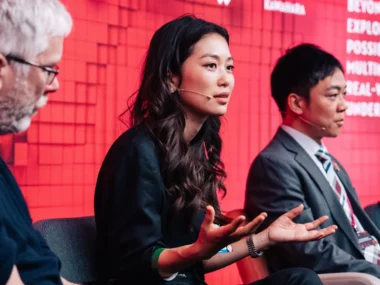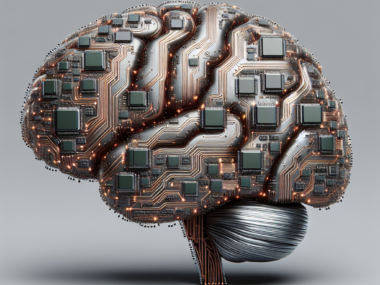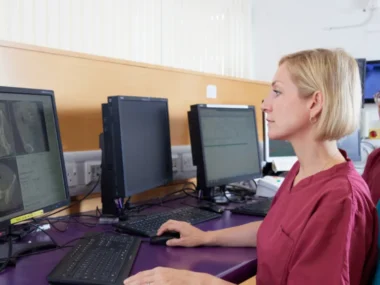Kristalina Georgieva believes it’s “critical” that governments develop social safety nets to reduce the impact on workers.
According to the head of the International Monetary Fund, artificial intelligence will influence 40% of jobs worldwide, and it is “crucial” that countries develop social safety nets to offset the impact on disadvantaged workers.
AI, which refers to computer systems that can execute activities typically associated with human intellect, is poised to dramatically alter the global economy, with sophisticated nations particularly vulnerable to disruption.
According to the IMF, the international lender of last resort, AI affects approximately 60% of occupations in industrialized economies such as the United States and the United Kingdom, with half of these positions potentially being severely impacted. However, the technology will help to increase the productivity of some workers as AI enhances their performance, according to the report.
According to the IMF, the safest highly exposed jobs are those with a “high complementarity” to AI, which means that the technology will augment rather than replace their work totally. This includes occupations requiring a high level of responsibility and interaction with others, such as surgeons, lawyers, and judges.
Telemarketing, or cold-calling people to offer goods or services, is a high-exposure job with “low complementarity” – which means it has the potential to be displaced by AI. Dishwashers and performers are examples of low-exposure employment, according to the IMF.
According to the IMF, AI job exposure is 40% in emerging market economies, which include China, Brazil, and India, and 26% in low-income countries, for a total of slightly less than 40%.
Generative AI, which refers to technology that can generate very convincing text, graphics, and even voice from basic hand-typed inputs, has risen to the political agenda since the introduction of tools like the ChatGPT chatbot.
According to Kristalina Georgieva, the IMF’s managing director, AI’s ability to disrupt highly skilled occupations means that advanced economies are more vulnerable to technological risks. She added that in severe instances, some jobs in major economies may disappear.
“Roughly half of the exposed jobs may benefit from AI integration, enhancing productivity,” Georgieva noted in a blog post accompanying the IMF report. “For the other half, AI applications may perform key tasks currently performed by humans, potentially leading to lower labor demand, lower wages, and reduced hiring.” In the most extreme instances, some of these occupations may be eliminated.”
She went on to say that in most situations, AI would likely worsen global inequality and exacerbate social tensions without government action. AI is likely to appear heavily as a topic of debate at the World Economic Forum in Davos this week, which top executives from the IT industry will attend.
“It is crucial for countries to establish comprehensive social safety nets and offer retraining programmes for vulnerable workers,” she said. “In doing so, we can make the AI transition more inclusive, protecting livelihoods and curbing inequality.”
According to the IMF analysis, higher-wage earners whose employment have strong complementarity with AI should expect their income to rise, leading to an increase in inequality.
“This would amplify the increase in income and wealth inequality that results from enhanced capital returns that accrue to high earners,” said the International Monetary Fund (IMF) report. “Countries’ choices regarding the definition of AI property rights, as well as redistributive and other fiscal policies, will ultimately shape its impact on income and wealth distribution.”
According to the paper, workers in the UK, which has a high proportion of graduates, may be better able to transition from jobs at danger of displacement to “high complementarity” jobs, whereas older workers may struggle to adapt and transfer to other jobs or retrain.
Satya Nadella, the CEO of Microsoft, which is the largest investor in OpenAI, the US startup behind ChatGPT, stated on Monday that there would be jobs in the future, but the question remained regarding “the shape of these jobs”. Nadella suggested AI may help with “mid-career transitions” during a Chatham House thinktank event in London. He went on to say, “I believe that in this day and age, having experts at your fingertips is essential. So, if anything, anyone can become an expert in anything since they have an AI assistant to help them.
Last year, the Organisation for Economic Cooperation and Development reported that the occupations most at risk from AI-driven automation were highly skilled ones, accounting for approximately 27% of employment in its 38 member countries, which included the United Kingdom, Japan, Germany, the United States, Australia, and Canada. It stated that professional professions such as law, medicine, and finance were particularly at risk.











